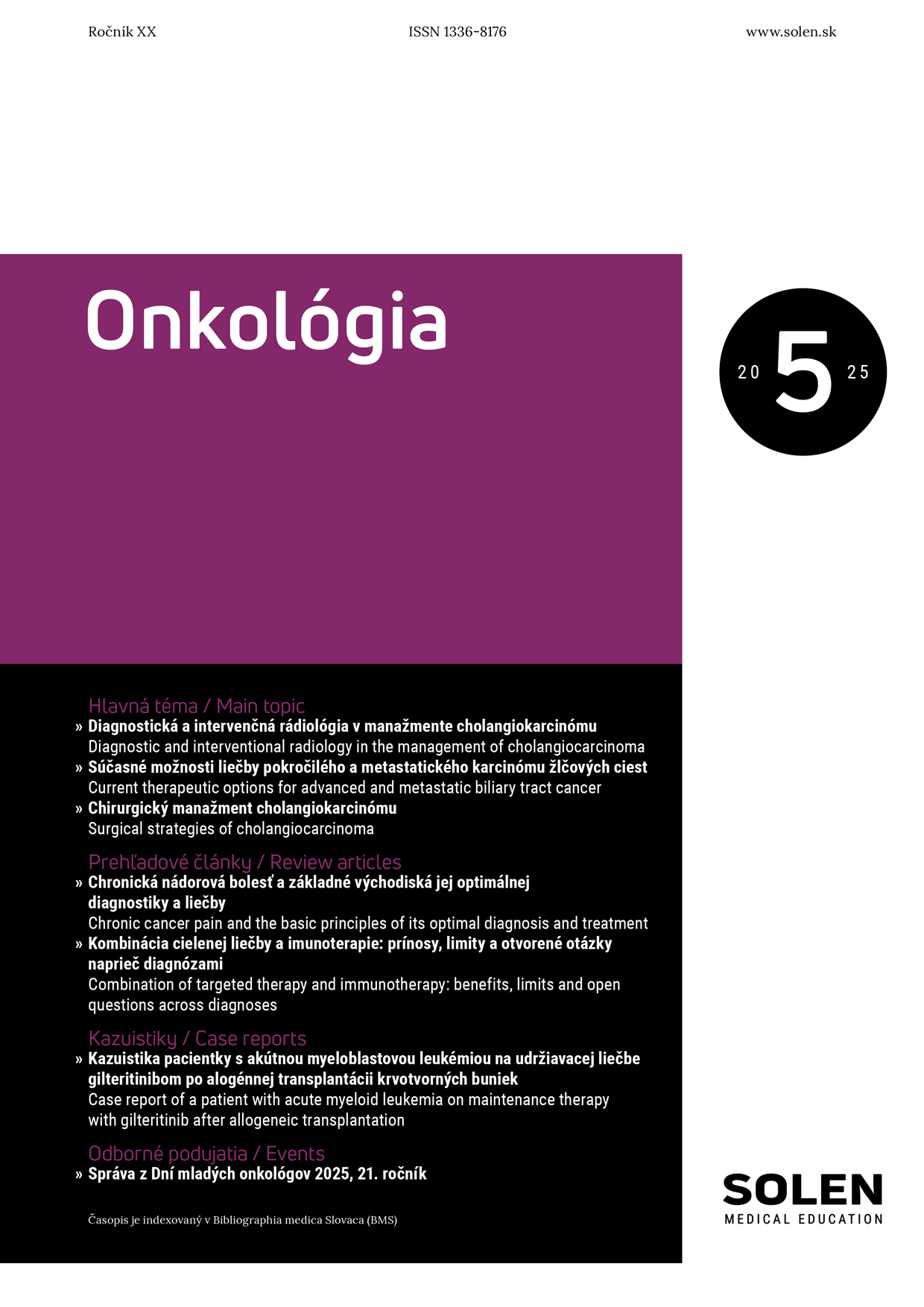Neurológia pre prax 1/2013
Paraneoplastic syndromes of peripheral nerves, neuromuscular junction and muscles
Classical paraneoplastic syndromes (PNS) in the present group include subacute sensory neuronopathy (SSN), Lambert-Eaton myasthenic syndrome (LEMS) and dermatomyositis. Sensorimotor peripheral neuropathies, autonomic neuropathy, peripheral nerve hyperexcitability are less common. The symptoms of PNS may occur before the presence of systemic cancer is known, making diagnosis more difficult. SSN is the most common and characterized by primary damage of the sensory nerve cell body of the dorsal root ganglia but some patients can also have evidence of axonal and demyelinating neuropathy. A paraneoplastic origin is only one of the causes and anti-Hu antibodies are highly sensitive for small-cell lung cancer. Antibodies associated with LEMS, myasthenia gravis, neuromyotonia or dermatomysitis are not cancer specific. The term peripheral nerve hyperexcitability includes disorders previously described as neuromyotonia, syndrome of continuous muscle fiber activity or Isaacs’ syndrome. PNS rarely improves with immunomodulatory treatment and the best chance of at least stabilizing the syndrome is to induce a complete response of the tumor.
Keywords: sensory neuronopathy, autonomic neuropathy, peripheral nerve hyperexcitability, Lambert-Eaton myasthenic syndrome.

















